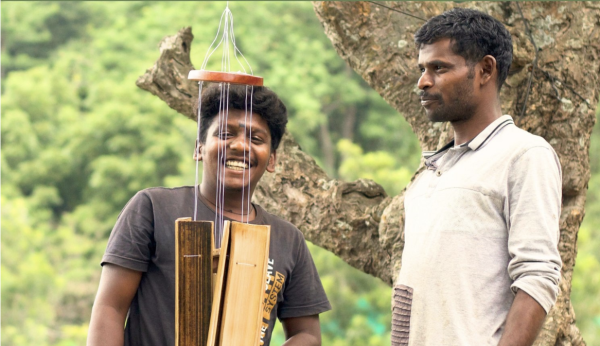Joyce DiDonato Performs Brave New Arrangements of Timeless Classics
Musician Joyce DiDonato and company brought an eclectic fusion of jazz and classical music to Finney Chapel on Wednesday, Feb. 27, performing songs from their new experimental compilation album, Songplay. This show is part of the Oberlin Artist Recital Series, an initiative known for bringing renowned musicians to Oberlin’s campus, joining campus and community together in a shared love of music.
What makes Songplay unique is not only the lineup of project collaborators, but also the arrangement of the songs. Pianist Craig Terry did that arranging, which ranged from Baroque epics to American contemporary classics. Terry approached the tracks from a jazz perspective, which resulted in a strong juxtaposition between the original pieces and their new adaptations.
In the event program, DiDonato described her performance style as a playground that “has joyously expanded to include an extraordinary gathering of instrumentalists across all genres, each bringing a particular sound and expertise.”
She echoed this idea in her opening banter, elaborating about her initial experiences of singing lessons. Her self-introduction resonated with Conservatory Voice majors in attendance, and moments of laughter echoed until the performance’s end.
As a whole, the show was well-paced. DiDonato slowly built up her accompaniment across the opening songs, beginning with Terry on piano, then Chuck Israels, double bass; Jimmy Madison, percussion; Charlie Porter, trumpet; and finally Lautaro Greco, bandoneon.
“These musicians are all titans of their field,” Terry said in an interview with Mike Telin published by Cleveland Classical. “When we made the recording it was fun, because Joyce and I come from our side of the business, and they all come at it from a different way. … We had to figure out what out what our common voice was, which took some time, but they’re all a total joy, and I’ve learned so much from them.”
The instrumentation was chosen thoughtfully to fill the remaining registers under captivating mezzo-soprano. The instruments were balanced and worked in tandem with one another as the night continued. Even in pieces where the instrument lineup seemed foreign to classical music, their roles did not feel forced. Rather, the addition of trumpet and bandoneon added flavor to timeless compositions.
The performance spanned simple instrumentation and powerful operatics, from Giordani’s “Caro mio ben,” which had Terry and DiDonato playfully picking on each other for attention, to a powerful rendition of “Will He Like Me?” from Jerry Bock and Joe Masteroff’s 1963 musical, She Loves Me. As if any surprises could be left by the time of the first encore, a rendition of Vivaldi’s “Arsilda, regina di Ponto” sent shockwaves through the crowd as the drums kicked in, introducing a jazz-inspired rendition of the Italian opera piece.
At times it seemed DiDonato was not truly in the spotlight. During the retextured classical pieces, jazz solos were tossed around among the band. While they were impressive in their own merit, and the performers shared the space well enough, DiDonato was the only one who didn’t join the fray.
Rather, she waited patiently for her rehearsed part next to the grand piano, sometimes nodding her head or tapping along to the beat. While it would have been interesting to see her improvise as well, the mezzo-soprano does not come from an improvisational background and didn’t take a stab at it in this experimental performance. She seemed more comfortable when performing the pieces like the Vivaldi.
“From a singer’s point of view — having sung some of those the Twenty-Four Italian Songs and Arias songs in a strictly classical sense — hearing back-to-back those and American standards was somewhat jarring in a way,” commented first-year Voice and Composition major Evan Tiapula. “The styles were so different. At the same time, DiDonato was ‘jazzing up’ the Italian songs, [and] that made them flow together.”
“I think in terms of DiDonato’s performance for the Vivaldi, [that was] where she was most in her element,” Tiapula continued. “Maybe that was due to the fact that it was an encore, and it was separated from the rest of the concert. She really came alive then in the concert style — it was refreshing to see her voice so present.”
Songplay is a rare treat for the Oberlin community, and the live performance brought surprises at every turn. There were no weak links or long pauses in the lineup — DiDonato and company brought a night full of expertise and energy to Oberlin.










